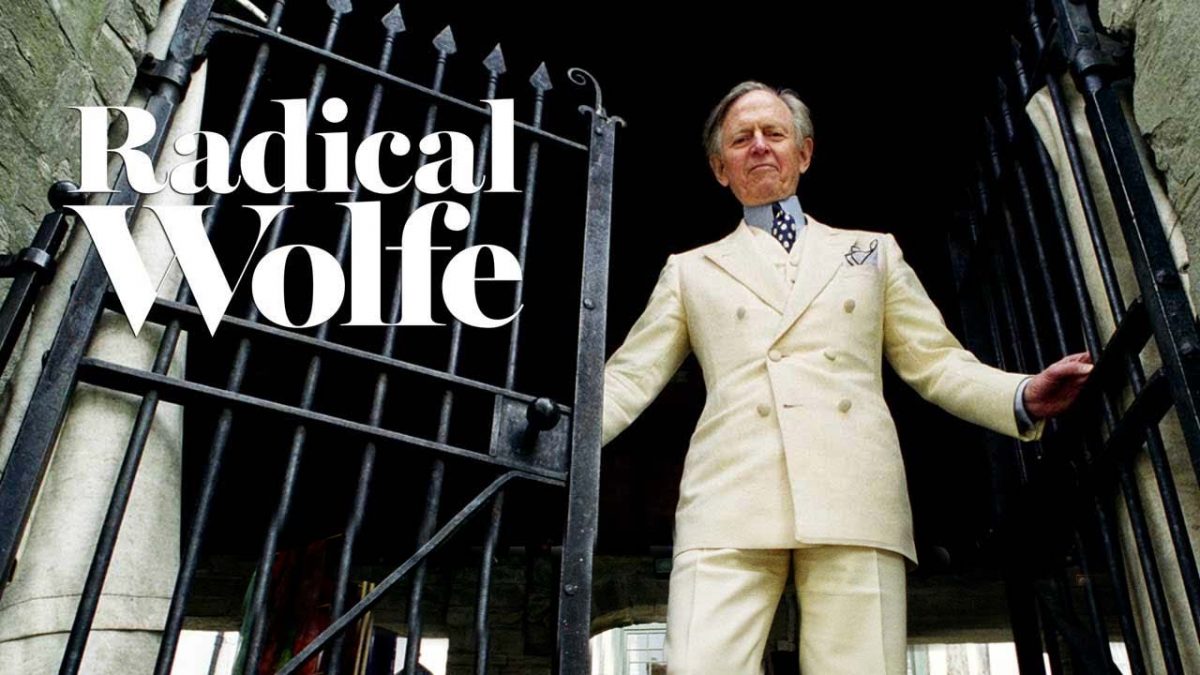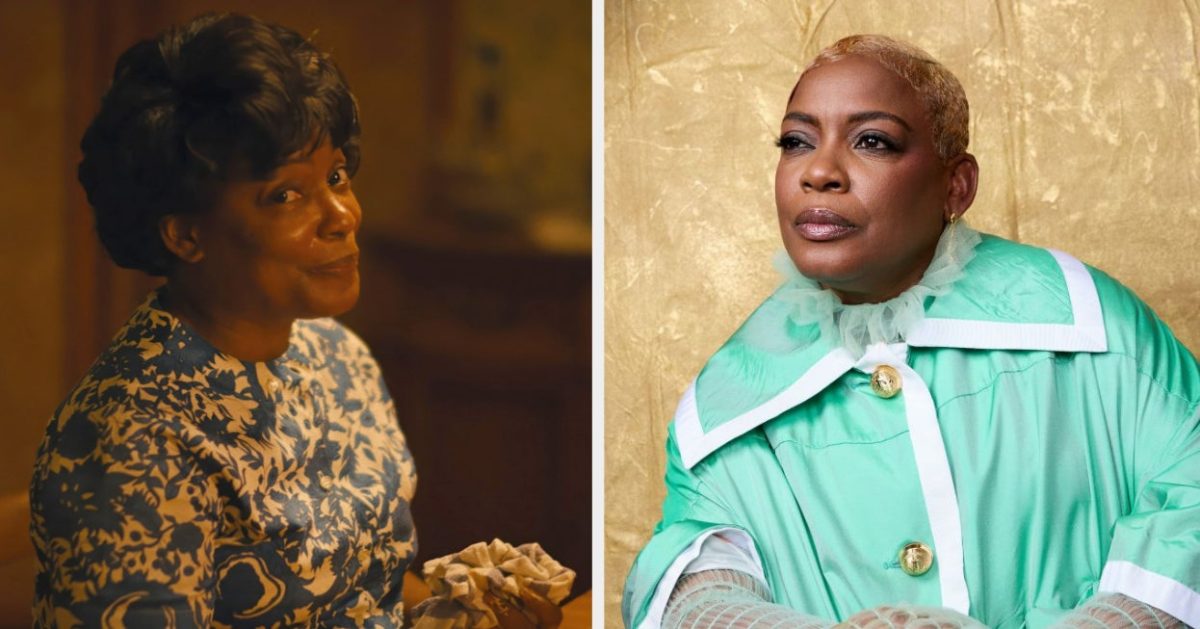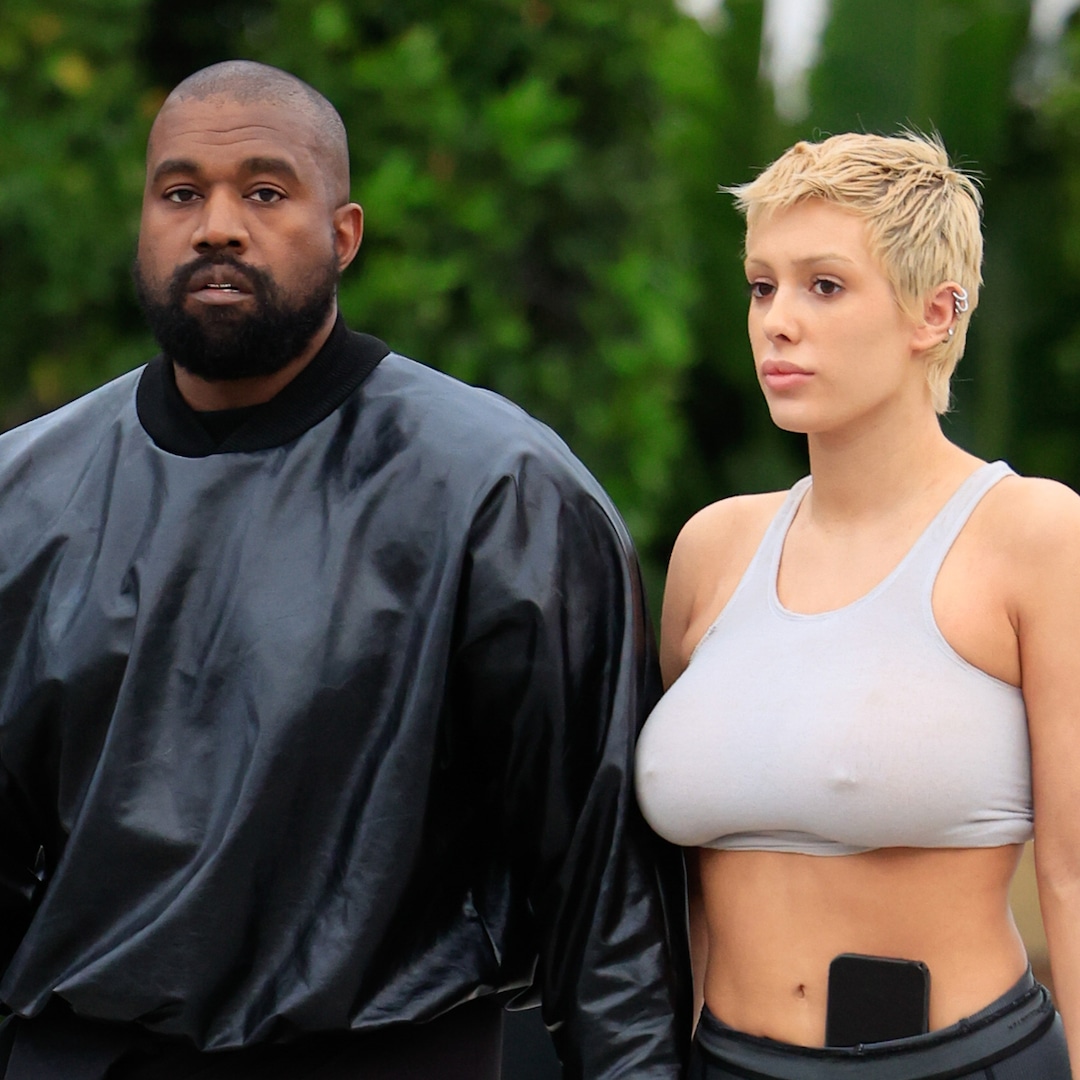
Richard Dewey’s Tom Wolfe Doc Celebrates His Journalistic Bravery But Doesn’t Emulate It
Sep 20, 2023
You wouldn’t want a documentary about Tom Wolfe to mimic his style. That could be challenging (just imagine all the on-screen exclamation marks!!!!!!!, idioSYNcratic CAPITALIZATION, and onomatopoeic spelling) not to mention possibly embarrassing. But it would have been gratifying to see Richard Dewey’s ‘Radical Wolfe’ documentary show a dash of its subject’s moxie, damn-the-torpedoes bravery, and cynicism-stung wit.
READ MORE: Fall Film Preview: 60+ Most Anticipated Movies To Watch
Solidly entertaining, if a bit thin, the film never gets more than a centimeter under Wolfe’s seemingly impervious skin. Understandably if disappointingly, Dewey revels in the fun bits, racing through Wolfe’s gonzo magazine pieces and big slabs of cultural reportage from ‘The Electric Kool-Aid Acid Test’ to ‘The Right Stuff’ and ‘The Bonfire of the Vanities.’ It’s possible this is because Dewey’s short, peppy documentary is adapted from a similarly admiring ‘Vanity Fair’ profile of Wolfe by Michael Lewis, who serves here as a kind of master of ceremonies. (If this formula proves successful, how many other legacy magazines could have articles turned into films? The Sunday New York Times magazine could turn into the next great incubator of narrowcast documentary content.)
Wolfe is just the latest of the great postwar American writers—following James Baldwin, Joan Didion, Hunter S. Thompson, and Kurt Vonnegut, among others in that illustrious cohort—to receive a valedictory cinematic summing-up. Dewey’s approach, like most of the filmmakers who take on this kind of subject, is that of the student approaching the master. Also like the better literary documentarians such as Raoul Peck, Dewey covers the biographical well but finds his groove when letting Wolfe’s words (rendered with a luxuriant verve by Jon Hamm) wash over the screen.
Virginia-raised and Yale-educated, Wolfe had an outsiders’ chip on his shoulder that would have suggested he would never fit into literary society as snugly as he did. Stung by having his Ph.D. dissertation about Communist influences on American writers rejected as “slanted to disparage,” Wolfe left academia. Though the film almost makes too little of the moment, it calls to mind other formative encounters where wordy intellects of a conservative bent banged up against the assumptions of mainstream East Coast liberalism. William F. Buckley, who made his career attacking the same institution that disparaged Wolfe’s work (1951’s ‘God and Man at Yale’), is seen in the film giving many friendly interviews to Wolfe. But unlike Buckley, Wolfe’s conservatism was never all-consuming. Wolfe wanted to poke and prod liberal pieties. But the man who comes across in Lewis and Dewey’s reckoning is too in love with writing and, for a while at least, too curious about America to be just a conservative scold.
In 1956, Wolfe took a cub reporter job at the ‘Springfield Union’ in Massachusetts. His early work was nothing spectacular, but the solid daily newspaper work gave him the training in shoe-leather doggedness he later used to get the raw material for his experimental magazine work. The stretches of the film covering Wolfe’s rapid ascent to magazine superstardom in the 1960s and ‘70s are unsurprisingly its most rewarding. What writer wouldn’t want to discover their voice the way Wolfe did: Sent by ‘Esquire’ to Los Angeles to cover its customized race-car scene in 1963, Wolfe spent weeks gathering material but couldn’t shape it. Desperate, Wolfe sent 49 pages of stream-of-consciousness notes to his editor, who just removed the salutation and ran the weird beast as it was. A blast of sound and color that bristled with detail and swooped around its subject with a rabidly enthused curiosity, “The Kandy-Kolored Tangerine-Flake Streamline Baby” hit journalism with all the impact of the moment sound entered cinema. It announced a new school of writing which Wolfe himself, in a move both correct and cannily self-promoting, branded “the New Journalism.”
Of New Journalism’s other two great practitioners, Gay Talese (whose “Frank Sinatra has a Cold” was almost as influential as Wolfe’s work)appears to say blandly kind things while the late Thompson is presented as both admirer and rival (an on-screen clip from one letter to Wolfe, “You thieving pile of albino warts,” is instructive). The more-celebrated but ultimately less talented Thompson—another Southern-raised gentleman who sent in reams of unedited notes to flustered editors, but in his case to decreasing success as the drugs and paranoia took over—comes across as an anarchic shadow to the more level-headed Wolfe. Curiously, the editor who published so much of both Thompson and Wolfe’s work, ‘Rolling Stone’ founder Jann Wenner, is not interviewed or even mentioned.
The articles and books Wolfe turned out in the 1960s and ‘70s revealed not only his prescient sense for trend-hunting, but also a curiosity about subcultures and oddities overlooked by Establishment journalism. This ranged from the then-unknown phenomenon of stockcar racing to the acid-dropping post-beatnik freaks coalescing around Ken Kesey. Lewis identifies Wolfe’s work as an attempt to “draw Blue America to Red America,” a populist take some of Dewey’s conservative interviewees like Niall Ferguson (and, in a confounding addition, billionaire tech reactionary Peter Thiel) enthusiastically agree with.
Wolfe’s reactionary streak became more pronounced in later years, when he lost some of his puckish humor. Lewis and Dewey pay less attention to the saggy, preachy books that followed 1987’s ‘The Bonfire of the Vanities.’ The film centers on his sharper satires, like the legendary 1970 article “Radical Chic: That Party at Lenny’s.” Wolfe took an accidental dream assignment—he wandered into David Halberstam’s office at Harper’s and snagged the invite to a Black Panthers fundraiser at Leonard Bernstein’s swank pad, as one could apparently just do in those days—and turned out an impressionistic blast of dialogue fragments, frenzied hypocrisy, and on-point cultural references which skewered the Manhattan swells awkwardly over-performing for the radicals they were hosting to boost their social standing.
Just hearing Hamm deliciously roll those words around (“Wonder what the Black Panthers eat out here on the hors d’oeuvre trail? Do the Panthers like little Roquefort cheese morsels rolled in crushed nuts this way”) makes you want to spend the next few weeks devouring Wolfe’s better work and just pretending books like ‘A Man in Full’ and ‘The Kingdom of Speech’ never happened. That is ultimately the purpose of a nice, well-meaning, staid film like this, which only allows the lightest bit of criticism to break the facade. Former Panther Jamal Joseph is brought in to push back on Wolfe’s “Radical Chic” critique in somewhat generic fashion. Too frequently, though, Dewey just trots out another person to repeat how daringly Wolfe slaughtered sacred cows.
Nice and kind man though he seems to have been off the printed page, Wolfe was often spoiling for a fight. “Literary feuds” are fun, he says in a news clip about a dustup over John Irving, John Updike, and Norman Mailer trashing his novels. Describing the back-and-forth, Wolfe flashes the boyish Cheshire cat grin which likely helped keep him from getting kicked out of New York society no matter how often he tweaked it. Unlike its subject, “Radical Wolfe” would rather be liked than start something. [B-]
Publisher: Source link
Alabama Barker’s $80k Christmas Haul Revealed
Meanwhile, Travis bought Alabama a pair of diamond earrings, as well as her third Cartier Love bracelet. Alabama said that Travis buying her a Cartier bangle “is kind of like a tradition now” as she explained that “every year” Travis…
Jan 4, 2025
Ice-T and Coco Celebrate Their “Sexy” 24th Marriage Anniversary
Ice-T and Coco Austin are ringing in a major milestone. The Law and Order: Special Victims Unit star and the model, who are parents to daughter Chanel Nicole, 9, not only celebrated the start of 2025 on Jan. 1 but…
Jan 4, 2025
Aunjanue Ellis-Taylor Talks Black Trauma, Nickel Boys
That's beautiful and so refreshing to hear. I’ve seen discourse online with sentiments of “Black films always have to have some type of trauma. Why can’t our characters just be happy?” What are your thoughts on that line of thinking?…
Jan 3, 2025
Kanye West Shares Rare Photo With Wife Bianca Censori
Kanye West and Bianca Censori are looking stronger than ever. The "Heartless" singer shared several rare photos of the pair to his Instagram Story Jan. 2, giving fans a glimpse into their private life. In the photos, Kanye, 47, can be seen snapping pics in…
Jan 3, 2025










